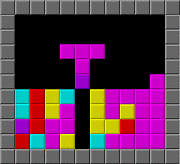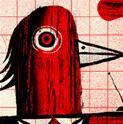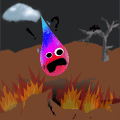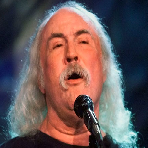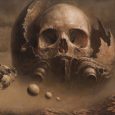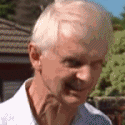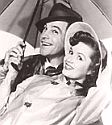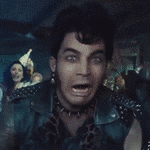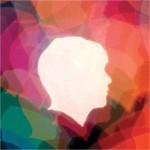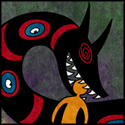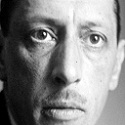|
March. 14. Spook Country. William Gibson. This was just an interesting book until the last few chapters, then it became amazing 15. Harry Potter and the Magician's Stone. J.K. Rowling. A fun short read. 16. A Study in Emerald. Neil Gaiman. A great interpretation of a classic Holmes story. 17. Shards of Honor. Louis McMaster Bujold. Not bad, but a little on the bland side... all the plotting behind the scenes is pretty good but we get lost sometimes, just like the characters. 18. The Truth. Terry Pratchett. Completely awesome and that's the truth. 19. El Hombre Duplicado. José Saramago. This author is always kind of hard to read. But the story is good enough to keep going to the end. 19/60
|
|
|
|

|
| # ? Jun 1, 2024 15:41 |
|
March Update:Stravinsky posted:1. 10/52 books in a year 8. Shadowed by Wings by Janine Cross - This is the book that the Prince of Thorns series desperately wants to be. Vicious, brutal things happen in the culture, and happen to the protagonist, and are done by the protagonist, but as shocking and awful as they are, it feels more believable and less like someone trying desperately to be edgy. I particularly enjoy the ghost of the protagonist's mother hounding her to find her younger sister, and the mother's clear favorite child. That being said, the book is full of the most ridiculous sexual imagery and has probably inspired a lot of the products on Bad Dragon. In particular are the protagonist getting stoned off being eaten out by a dragon and dragon rider apprentices having to beat dragons in the nutsack with bamboo rods to get them excited enough to mate in captivity. 9. Perfume: the Story of a Murderer by Patrick Suskind - I loved this book, and I'm so glad I am doing the challenge as I'd never have picked it up otherwise. Quick read, great descriptions throughout, equal parts horror and almost whimsical fantasy. I did not expect the absolutely gruesome ending, but it worked well. 10: At Home: A short History of Private Life by Bill Bryson - Doubling up on history books for the challenge. A tour of a house with a room-by-room history lesson of why each room is named as it is, contains what it does, etc. Its a lot like the old show Connections, and meanders a lot in ways that are rather off-topic (the legal history of kidnapping is related rather tangentially to bedrooms and attics for example) but its interesting enough you don't mind the disorganization. Currently Reading: The Nurture Effect: How the Science of Human Behavior Can Improve Our Lives and Our World by Anthony Biglan - Written more for laypeople than professionals, but so far has been very uplifting to read. Willpower: Rediscovering the Greatest Human Strength by Roy F. Baumeister, John Tierney - I picked this up just to get a different perspective on self-control and impulsivity. Its a challenge if only because I want to argue with the book as I read it.
|
|
|
|
March: 21. Gormenghast (Gormenghast #2) - Mervyn Peake 22. Grave Peril (Dresden Files #3) - Jim Butcher 23. Hyperion (Hyperion Cantos #1) - Dan Simmons 24. Northanger Abbey - Jane Austen 25. The Fall of Hyperion (Hyperion Cantos #2) - Dan Simmons (L) 26. Half the World (Shattered Sea Trilogy #2) - Joe Abercrombie (L) 27. The Lacuna - Barbara Kingsolver 28. Sea of Monsters (Percy Jackson #2) - Rick Riordan 29. The American Political Tradition - Richard Hofstadter 30. Titus Alone (Gormenghast Trilogy #3) - Mervyn Peake 31. Warbreaker - Brandon Sanderson 1. The vanilla read a set number of books in a year.: 31/52 2. Read a female author: 6/10 (adding Kingsolver and Austen) 3. 4. Philosophy 5. History: 3/5 (American Political Tradition) 6. An essay:: The American Political Tradition was a series of essays about various famous American men. Some of it was good, some of it so-so. But they were essays. 7. A collection of poetry 8. 9. Something absurdist 10. The Blind Owl 11. Something on either hate or love 12. Something dealing with space: the Hyperion books. 13. Something dealing with the unreal 14. Wildcard (Some one else taking the challenge will tell you what to read) 15. Something published this year or the past three months: Abercrombie's "Half the World" came out in February. 16. That one book that has been sitting on your desk waiting for a long time (None this month) 17. A play 18. Biography 19. The color red 20. Something banned or censored 21. Short story(s) 22. I have to say, I went the safe route this month and read a ton of fantasy/sci-fi books in series. (Like 7 out of 11 of the books I read were "part x of a series.") That's alright though - I've started on Ulysses. I'm thinking I'll probably finish that one in May...
|
|
|
|
21. The Long Earth - Terry Pratchett & Stephen Baxter: The concept itself is really interesting and exciting. The entire book plays out more like a thought exercise than anything. I found this approach to parallel earths to be fascinating. That being said the attempt at plot fell a little short. People expecting a fast-paced, comedic adventure will be disappointed. 22. NightJack - Tom Piccirilli: A highly bizarre and disorienting story of multiple personality disorder with a murder mystery thrown in for good measure. Piccirilli does a really good job of creating that dark, confusing atmosphere in his books, but the story itself left a bit to be desired. 23. The October List - Jeffery Deaver. A thriller novel written entirely in reverse. The last moment happening in the first chapter. At first it reads like a really lovely James Patterson novel, but the deeper you go, and the layers of plot are uncovered, you end up with something really unique and exciting. Not the best for somebody new to Deaver, but for somebody looking to try something experimental, it's really satisfying. 24. How to Be Black - Baratunde Thurston: Part autobiography, and partially an insightful and intelligent look into what it means "to be black" and what it means to cope as a black person in a society dominated by whiteness. There are books out there that do a better job getting down into the core issues, but this could serve as an interesting and entertaining "black experience for dummies" type book. 25. The Way of Kings - Brandon Sanderson: This took me forever to read, and it reads a lot like a prologue. You don't really see much of the bigger picture, which is different because Sanderson is typically somebody who gets to the point. One of the first books I picked up on my Kindle, I've only gotten around to reading it now. It is quite good, but it is also quite the committment. 26. F. Paul Wilson - Crisscross: More Repairman Jack. This time, he basically takes on the church of scientology. Wilson's Repairman Jack is highly satisfying, and it remains very consistent from book to book. 27. She Comes First by Ian Kerner: Basically a nerd writes the ultimate book about going down on women. It actually has some interesting things to say, but you can accomplish the same goals by communicating with your partner. I really, really, really don't recommend this as an audiobook. Lots of flowerly language and similies and metaphors to keep the tone cerebral as opposed to arousing. It was interesting, it provides some new things to try/consider, but I don't feel like its a game changer for those who can get a lady off. 28. Storm Front - John Sandford: Really light, pop-corn reading. Sandford's secondary series featuring Virgil Flowers. It was good enough to read, but ultimately fairly week and forgettable. Instead of fishing and rear end kicking, the plot got a little too silly. Its nice to see Sandford shake things up a bit, but he should stick to what he does best. 29. Skink No Surrender- Carl Hiaasen: Probably the weakest of Hiaasen's books for young adults, that being said, the book was still entertaining. A teenage reader will really connect with this book and enjoy it, but from somebody who has read a good number of Hiaasen's books, it doesn't bring much to the table we haven't seen before. 30. Lexicon - Max Barry: the concept itself is really interesting and exciting. I could see somebody taking the concept of linguistic persuasive superpowers and turning it into the next "PREACHER" or "100 Bullets" comic. This book, while fun and exciting, just didn't do enough with such a good idea.
|
|
|
|
Chamberk posted:That's alright though - I've started on Ulysses. I'm thinking I'll probably finish that one in May... oh man, that's a wonderful loving book.
|
|
|
|
Burning Rain posted:7. Amin Maalouf - Samarkand. For some reason I was expecting something more than a straight historical political adventure novel, but that's what I got. Basically Eco-lite set in 10th/11th & 19th/20th century Persia with Omar Khayyam's manuscript being the tie between them (along with some nods to the contemporary Middle East). 13. Robert Jackson Bennett - The City of Stairs . For all the hype I was expecting something much more interesting and stronger instead of NotEnglish in NotIndia with living gods and naked viking stereotypes and a great big battle in the end. It wasn't bad though, just... decent? 14. Josef Škvorecký - The Engineer of Human Souls. I was surprised to read a 900 page (in my edition) behemoth of a novel so engaging, especially considering that it consists an exiled English professor from Czech Republic remembering his life under two occupations and contrasting it with his Canadian students. But it was really good, and Škvorecký manages to keep almost all of the book's myriad of mini-plots interesting and moving. 15. Jeff VanderMeer - Acceptance. I still think that the first book was the best of series, although this was better than Authority. I really think the series would've been better without the second book and just having some of its stuff appear in flashbacks or something. Also, VanderMeer's prose can get unbearably flowery. 16. Daina Tabūna - Pirmā reize. A Latvian author's debut book of short stories. Not very ambitious but well developed, I'll be following her progress. 17. Juan Goytisolo - A State of Siege. The book borne out of Goytisolo's experiences in Sarajevo during the war, but it's not really about the war. To be honest, I'm not sure what it was about (except infinite and endlessly mirrored doppelgangers), but it was very good even if a bit too neat in the structure. I have 4 or 5 more of his books because I asked a friend who was cleaning his house of books, to leave his favourite Goytisolo, and he gave me a whole bunch. Good thing I was always curious about him.
|
|
|
|
Didn't get to read as many books as I had wanted this month, but here it goes: March 12) Winter Siege by Ariana Franklin 13) The Isle of Youth by Laura van den Berg (Short stories) 14) The Buried Giant by Kazuo Ishiguro (Something published this year or the past three months) 15) John the Pupil by David Flusfeder Personal challenge: 15/60 Booklord challenge: 7/22 I'm still on the fence about The Buried Giant. I really wanted to love it, but I found myself spacing out during the narrative. Ultimately, that might have been part of Ishiguro's plan for readers all along, as it's a book about memory and how memory can be easily erased. Slow plot, but some beautiful language. I'm currently reading The Salmon of Doubt by Douglas Adams, which is a re-read from many years back. I'll be moving on to Jon Ronson's new book after that.
|
|
|
|
First update of the year for me, let's do this. 1) Discworld: Men At Arms - Terry Prachett. I liked the first Watch book more, but it still had the same charm and intrigue of the first. Progressing through Discworld is sort of an on-again off-again journey, but its always a very rewarding experience. 2) Gandhi: His Life and Message for the World - Louis Fischer. That meets my Biography challenge! Ghandi certainly was a fascinating guy. The author spends a chapter talking about the few lucky chances he got to meet with and talk with the man himself. It was an incredibly interesting viewpoint all in all. 3) The Maltese Falcon - Dashiell Hammett. Mystery challenge met. I ended up comparing it to that podcast Serial in my mind for who knows whatever reason. In Serial, you get the sense everyone is telling the truth but are operating on misinformation. In Maltese Falcon, like all film noirs, I feel like everyone to lying. It was a pretty engaging story, but I'm not sure I'd want to reread it anytime soon. 4) Being There - Jerzy Kosinski. I think I liked the idea of the story. Its hard for me to decide what the meaning was in the end. It ends pretty abruptly and I think it needed to work a little harder toward its (what I assume is) intended message. The characters are interesting enough though and the dialogue is pretty darn funny, so I guess I give it a pass. 5) Do Androids Dream of Electric Sheep? - Phillip K. Dick. WOW. Uh. Again, I liked the ideas of the story. But there's so many ideas that they all get scrambled together into a baffling mess. So in the end I'm not really sure how I felt about this one too. It was just kinda... odd. Well, that covers the first three months of the year. Unless I end up reading a whole bunch in April or May, I'll probably check in again when June ends.
|
|
|
|
Late to this, but my goal is read 26 books, including all of The Wheel of Time. So that's 14 books in the Jordan/Sanderson camp, with the other 12 there to help maintain my sanity. Currently I'm on The Shadow Rising. There has been braid pulling.
|
|
|
|
Here is my update for the end of March. I've been playing lots of Bloodborne, so uhh my cultural aspirations are poo poo right now, and I didn't read that much. sorry. Wildcard - Rendezvous With Rama by Arthur C. Clarke. I did not really like this book. This book won a bunch of sci-fi awards, and is like regarded as one of the best, but if this is the high point of American Science Fiction, then American Science Fiction is trash. so the plot is this: a non-natural object is discovered moving thru the solar system in like the year 2200 or some poo poo, and we have to check it out. so we do, its an alien vessel, a crew spends like 3 weeks looking at all the cool alien stuff inside it, there is a little bit of drama, and then the vessel heads outta the solar system. This is actually a cool idea, but there are three major problems with the novel. 1.) bad characterization. You don't have to have developed characters to make good sci fi. Clarke stuffed some boring dudes and dudettes into this book for no reason, and its boring. He should have left them as blank slates, and focused on the good stuff, i.e. exploring an alien spaceship! 2.)The Prose Is Bad. 3.) Stanislaw Lem did it better. The main through line is that like aliens are so weird, kinda incomprehensible, what are we to make of all this sweet-rear end tech? That was also Lem's major theme in like most of his work, and he explored it fuckin' better. Please read Stanislaw Lem. I rate it a 1.5/5 Something about space - Last and First Men by Olaf Stapledon. This book was recommended to me by my father, and since I am a dutiful son, I read it. Olaf Stapledon was a British dude, and he lived from like the late 1800's to 1956 or something. This book was written in 1930, before sci-fi tropes like lazer space battles became de rigueur. The premise is that a dude from the waaaaay far future is telling the author the evolutionary future history of man for the next billion or so years. In a couple hundred million years we have 2 go to Venus, and then a few hundo million years we settle on Neptune, and then we die from some like burst of radiation. Over time, of course, man goes through successive evolutionary stages. The future man, the one telling our author the story, is the fifteenth discreet iteration. This book is insanely creative and bizarre, and I think it should be read for that reason alone, but be warned: there is some 1930's British racism in there. I'm going to give it a 3.86/5 Other Book - The Woman in the Dunes by Kobo Abe. This book is amazing. It's like a Japanese Kafka, but with more sex. An amateur entomologist goes to the coast, to a sand-duney area (do they even have those in Japan) to try and find a new sub species of beetle. He stays overlong, and decides to stay the night at a local village. But it's weird, becuz all their houses are dug way down into the sand, like 60 feet, and you have to climb a rope ladder to get down there. Our dude decides to be polite, stay, and meets the titular woman who lives in a house in the dunes, eats din din, and gets ready for bed. The woman works through the night to clear the encroaching sand so the house doesn't get overrun, she fills up buckets full of sand, these buckets are lifted out, and taken away by other villagers. The entomologist thinks this is hella weird, but goes to sleep, thinking he'll move on in the morning. Wrong. They won't let him leave! He's trapped down in the dune pit. What happens next? You'll have to read it my friend. This book is a solid 4.75/5 I am too tired to check on my progress, I beat the Bloodborne final boss and am drained emotionally, physically, and spiritually. When I recover, I'm going to read another Stapledon novel, and The Man Without Qualities by Robert Musil.
|
|
|
|
Ah yes, you should definitely read Stapledon's Star Maker at some point. To give some idea of the sheer scale of the thing, it starts off with a very brief summary of The Last and First Men and then leaves such minutiae in the dust.
|
|
|
|
Groke posted:Ah yes, you should definitely read Stapledon's Star Maker at some point. To give some idea of the sheer scale of the thing, it starts off with a very brief summary of The Last and First Men and then leaves such minutiae in the dust. That's what I'm reading. The scope is incredible. Is there anything else like it, out there in the wide world of lit?
|
|
|
|
Nope, although I'm trying to find it to publish it.
|
|
|
|
saphron posted:1. The Last Man by Mary Shelley (2: Read a female author) 8. Traitor's Blade by Sebastien de Castell I feel weirdly ambivalent about this book. On the one hand, it was good enough that I didn't want to put it down, and I enjoyed the ride. A good ol' swashbuckling adventure with witty banter? Sure! On the other hand, parts of the book just didn't sit all that well with me (interlude with the priestess stands out the most, though there were other parts too, and an ending that felt one deus ex machina on top of another). I'll probably get around to reading the next book at some point, but I don't feel compelled to hunt it down immediately. 9-11. Riyria Revelations series (Theft of Swords, Rise of Empire, Heir of Novron) by Michael J. Sullivan I started Theft of Swords as an audiobook, and then got impatient about 3/4th of the way through and bought the drat ebook to jump ahead. And then the next one. And then the next one. A fun, entertaining fantasy read that had much less scheming thievery than I expected, and much more adventure and interesting cast of characters. 12. Invisible Cities by Italo Calvino (reread, 8. Something post-modern) The first time I read this was in a series of hospital waiting rooms, so I wanted to give this a proper reread. Still goddamn beautiful. It's been a lovely month, so I ended up binging on genre fiction for the most part, fantasy escapism and all. Hoping to get back to Autumn in the Heavenly Kingdom soon, but I also have Satin Island to read for book club. Woop woop. Also, someone wildcard me please!
|
|
|
|
saphron posted:Also, someone wildcard me please! History of the Siege of Lisbon by José Saramago
|
|
|
|
ulvir posted:History of the Siege of Lisbon by José Saramago Looks neat, cheers!
|
|
|
|
Siminu posted:
I've read The Dispossessed, which was excellent, and I liked it better than the left hand of darkness. Focusses on the ins and outs of utopian (anarcho-syndicalist) politics rather than gender this time. And also science and how it changes based on the culture it is embedded in. My second book update: 3/26. If on a winter's night a traveller by Italo Calvino. This was a real mind bender. Reading a book about reading the book you are reading, which becomes different books. I guess I took it to be kind of a love-letter to reading books in general, it had some infuriating sections, but was mostly very delightful to read. 4/26.The Stranger by Albert Camus. The second Camus book for this year, I liked it but I read that many readers empathise with the main character, and I really couldn't. I think I could see where Camus was going with it, especially after reading The Fall, which kind of follows through the life philosophy of The Stranger to a conclusion of sorts. I think the other thing that distanced it from me is that Camus (like others in his generation) would have felt more strongly about rejecting christian ethics than we would today, so the existential terror of being "untethered" from the rock of christianity seems a bit overwrought today I think. 5/26. The Warmth Of Other Suns by Isabel Wilkerson. This is a history of black migration from the southern united states to the north from 1915-1970. It was quite a harrowing read, but well worth it. Built out of three people's accounts , with many more as backing evidence, it details the lives of blacks living in the Jim Crow era south and the effective slavery that followed emancipation, the lengths required for these migrants to make their way to the north and west, and their treatment and lives in northern cities. 6/26. Guards Guards! by Terry Pratchett. Decided to read some more Pratchett after news of his death, the few books I've read of his were his first few, so it was nice to see his writing abilities got much better by book 8. A sly satire of politics, and dog breeders. 7/26. The Martian by Andy Weir. Awesome for its technical elements and suspense (which is what I read it for really), clunky in characters. The main character is great as a hero using his engineering and science skills to survive, but kind of childish, maybe the author is a bit of a neckbeard. Still really loved it.
|
|
|
|
david crosby posted:Here is my update for the end of March. I've been playing lots of Bloodborne, so uhh my cultural aspirations are poo poo right now, and I didn't read that much. sorry. I felt the exact same way about this book. It's strange that it's considered such a classic. My biggest beef with it was it didn't really have an ending. It was just like, "Ayup, well, that stuff happened. Boop."
|
|
|
|
Groke posted:
This looks awesome, ordering!
|
|
|
|
quote:
A bit late to the party, but I'm trying to catch up. Death in the Andes - Mario Vargas Llosa MVL has written better novels, but this was still very enjoyable. Great atmosphere and a palpable sense of dread - civil unrest in Peru serves as the backdrop here, and the threat of the Shining Path serves as a kind of constant narrative pressure. It was translated pretty well, but there's an annoying tendency to incorporate explanations of unfamiliar terms into the actual prose instead of using footnotes or a glossary. There are times when it really throws off the cadence of some otherwise great prose, which is especially obnoxious when context clues are often more than enough to figure out what each word means. He plays around a bit with narrative structure, and I'm still now sure what I think about it. At one point there is a character explaining events that have happened in the past, but the story told via flashback as if it is happening in the present, and another character who is listening to the story interjects with questions and comments that are just incorporated into the flashback as if he were standing there in the middle of the action. It's very odd, and I'm not ever sure if my explanation of it makes sense. A Personal Matter - Kenzaburo Oe Picked this up because it was short, a Nobel prize winner, and because I need to read more Japanese literature that isn't Mishima or Murakami. Broadly, it is a novel about a father whose first child is born with a brain hernia. The protagonist is a philandering former alcoholic who spends a large part of the novel wrestling with whether or not he should let his child die so that he doesn't have to deal with the aftermath and so that his dreams of visiting Africa aren't dashed, and yet Oe manages to make him sympathetic. It's a very emotionally dense work, and the translation was great considering how odd Oe's prose can be (apparently there are aspects of his writing which are considered pretty "un-Japanese"?). I will say that some of his scenes seem to drag on a bit, like he keeps going after he's finishing mining everything worth saying, which is pretty noticeable in such a short novel. Still very happy that I read it, and I'd happily recommend it. The Stonemason - Cormac McCarthy McCarthy's first foray into writing for the stage. It is presented through the eyes of a black third-generation stonemason living in Kentucky during the 70s, though race plays a surprisingly small role in the narrative. I'm a big fan of McCarthy, but I don't think his style is well-suited to a play. There are great bits of writing in it, no doubt, but I honestly don't see how you could put on a passable performance of the piece. Not only is in in five acts (two of which are almost completely expository), but huge swathes of it are monologues, and some of the most interesting characters get buried. There are also two versions of the main character on stage at once - one in the scenes themselves, and one who stands at a podium and serves as a kind of omniscient narrator. Some wonderful dialogue and haunting stories, but I think it probably should have been a novella instead. The Collected Stories of Amy Hempel Pretty much everyone who gives a poo poo about short stories knows Hempel from "In the Cemetery Where Al Jolson is Buried," and while it might still be her best story, a lot of her other pieces are absolutely worth reading. A lot of the stories are pretty short, clocking in at 2-4 pages, but they are packed with an impressive amount of characterization and some very vivid, observant prose. You can definitely tell that a couple of the stories were written earlier in her career, but the quality is consistently high throughout. Not many short story authors have better hooks and endings than Amy Hempel. The Yalu - Paul Valery This was an essay I've been looking to get my hands on for a while. Valery is great - he is one the few essayists that can genuinely write about almost anything with authority, from classical architecture to Renaissance fine art to European politics. The Yalu is a lengthy piece that explores the differences between East and West, particularly as it relates to the relationship between violence and intelligence. One of the main thrusts of his arguments here is that intelligence can be used as a tool to both inflict fear and to avoid facing the awareness mortality, and whether it is possible to know, or at least seek to know, too much. Invisible Cities - Italo Calvino I've always had a soft spot for the Italian fantasists, but somehow I'd never read this. Calvino's prose is wonderful - he has this way of painting an image that is both perfectly clear and inscrutable, and the structure of this "novel" just gives him free reign to explore so many different themes and concepts in so many interesting ways. After reading up on the monthly book club chat here, I definitely agree with the people who saw this as a way of conveying the concept of Venice. The interludes between Kublai Khan and Marco Polo are perfect, and the descriptions of the cities are worth the price of admission alone. Those looking for a traditional novel are going to be disappointed, but I think approaching this on its own terms is very rewarding. Grizzled Patriarch fucked around with this message at 05:16 on Apr 6, 2015 |
|
|
|
Grizzled Patriarch posted:The Yalu - Paul Valery Is that the essay McCarthy quotes or paraphrases in Blood Meridian?
|
|
|
|
Boatswain posted:Is that the essay McCarthy quotes or paraphrases in Blood Meridian? Yeah, the BM epigraph is the first place I'd ever seen it, and that quote was so good that I had to track it down. The essay pairs well with Valery's letters to Andre Gide, but trying to find a collection that has both in it - even a "complete works" is surprisingly difficult.
|
|
|
|
thespaceinvader posted:1: Cryptonomicon by Neal Stephenson The plot was fun, the twists were clever, and overall I was really impressed. I'm already moving on to Story of the Stone, and finding myself disappointed that Hughart only wrote three books...
|
|
|
|
As predicted, not really making much progress against X # of books, but oh well. Finished Margaret Atwood's Blind Assassin. The main story is kind of boring, but I suspect this is by design - the protagonist is just never anything other than a father or a wife or a mother or a sister. I quite liked the idea she was a pretty lovely author too - so many cliches, and characters cursorily drawn. The treasure is in the roman a clef, and in the little sci-fi allegory embedded within it, that together had just enough symbols of pathos and ethos to bring out the contrast with the rather pastel main storyline. Having looked at previous reviews, it was interesting to see that it was not that well received, even called badly written in places. Perhaps it was. I enjoyed most of all the gaps; what was unsaid went very loud. Woolf and her waves next. 1. 7 Books. Wind up bird chronicle, Murukami Brothers Karamazov, Dostoyevsky Mindset: how you can fulfil your potential, Carol Dweck Book of Strange New Things, Michael Faber Chavs, Owen Jones Skills-based Learning for Caring for a Loved One with an Eating Disorder: The New Maudsley Method, Treasure, Smith, Crane Blind Assassin, Margaret Atwood 2. Female author - Dweck, Treasure et al., Atwood
|
|
|
|
knees of putty posted:Having looked at previous reviews, it was interesting to see that it was not that well received, even called badly written in places. Perhaps it was. I enjoyed most of all the gaps; what was unsaid went very loud. Woolf and her waves next. I didn't really like the book all that much either, but it won the Booker Prize, so I think it was pretty well received?
|
|
|
|
Well I guess, but I'm not sure the Booker prize is all that much of a guide to its reception. https://www.nytimes.com/books/00/09/03/reviews/000903.03mallont.html http://www.theguardian.com/books/2000/sep/17/fiction.bookerprize2000 aren't really overwhelmingly appreciative reviews.
|
|
|
|
I keep meaning to post books as I am reading them/finish them so my thoughts are fresher in my mind, but I keep getting caught up in other poo poo. Anyway, I have done a ton of books since my last post so I will give some brief thoughts on them: Get in Trouble by Kelly Link - This was good although it seemed a little darker than her earlier story collections. Best by far was Two Houses, a story about telling ghost stories on a spaceship that lost contact with its sister ship. Beware of Pity by Stefan Zweig - Purchased this on sale after reading that it was used as the basis for The Grand Budapest Hotel. I can see where the inspiration came from, but obviously Anderson was using the setting/era as a framework for his movie while injecting his own whimsy, so it didn't have any of the charm I was hoping for. It was okay otherwise, if a little dry. To Kill a Mockingbird by Harper Lee - Reread this on a whim when I saw it on my sister-in-law's bookshelf. Good as always, I appreciated certain things differently now that I am older. Physics of the Future by Michio Kaku - I had previously read Physics of the Impossible, so I searched out some other stuff from Kaku when looking for more non-fiction I might like. This was probably not as good as the former, but what I really appreciated about it was how infectiously optimistic it was. Most other speculative science stuff I have read in essays or articles lately has been doom and gloom stuff about climate change and ocean levels rising and antibiotic resistance, while this was a bunch of stuff about how rad the future is going to be. Obviously a lot of the predictions should be taken with a grain of salt (which he hammers on over and over again anyway) but it is still cool reading about things currently being researched and what might theoretically be possible or even probable in the next 100 years. Flash boys by Michael Lewis - I always love reading Lewis's stuff, especially about the financial industry which he makes seem appropriately hosed up but also super entertaining. What If?: Serious Scientific Answers to Absurd Hypothetical Questions by Randall Munroe - I didn't realize this was written by the XKCD guy when I checked it out, so at first I was a little wary but then my apprehensions were put to rest pretty soon. Obviously I am not knowledgable enough to know how accurate the science is (and in fact he has a few footnotes about corrections to articles that he received before publication) but it was still hilarious seeing it applied to ridiculous scenarios. The Man Who Mistook His Wife for a Hat by Oliver Sacks - This was fascinating although it is kind of crazy to me how far the mental health industry has come in the 30 years since it was published. Although I suppose a lot of the stories were written years prior as he encountered these patients. Right now I am finishing up Mr. Palomar by Italo Calvino and then moving onto The Blue Book by A.L. Kennedy (I am not sure where I saw her name recommended, I think in one of these threads).
|
|
|
|
The only book I finished in the last two weeks was Star Maker by Olaf Stapledon. It was cool. basically the same as Last and First Men, but bigger scope. I'll have a cooler update with no sci-fi at the end of the month, wherein I'll talk about the new Pevear/Volokhonsky translation of some Chekhov stories, and 2666 by Bolano. C ya.
|
|
|
|
thespaceinvader posted:1: Cryptonomicon by Neal Stephenson
|
|
|
|
Remember how my February writeup was a bit late? This is the March one and it's a lot late. No new Booklord entries this month, either.Booklord Challenge Update posted:1. 33/96 books read; 8 nonfiction (24%), 17 rereads (52%) 22. The Polyamorists Next Door by Elizabeth Sheff An ethnography of polyamorous families with children, this is repeatedly cited in More Than Two and is particularly relevant to my wife and I. The results are pretty much what we expected (to boil down an entire book to a single sentence): kids in poly families grow up pretty much the same as kids in mono families, but may have to deal with disapproval from outside the family. Some of the stories are pretty adorable, actually. Apart from that, the book also contains accounts of the author's own experiences with polyamory and her fights with the IRB to get her studies approved, and both are big buckets of 23. The M-1 Rocket Engine by Walter F. Dankhoff A technical report rather than a book per se, this is short, dense, and extremely dry. Had it ever been built (individual components were tested, but the whole engine was never assembled) and used, this engine would have been the second stage engine for a manned mission to Mars, powering the departure from LEO of a 500 tonne spacecraft. It dwarfed the F-1 engines used on the Saturn V and ran so hot that the 350°C gas from the turbopump was used to cool most of the engine bell. This report was written when M-1 research was still ongoing. Wikipedia has the epilogue: throughout the 1960s, M-1 funding was cut to support Apollo, finally being defunded entirely in 1965. The complete engine was never built. 24. Good Omens by Terry Pratchett and Neil Gaiman 25. Equal Rites by Terry Pratchett 26. Pyramids by Terry Pratchett 27. Small Gods by Terry Pratchett 28. Feet of Clay by Terry Pratchett 29. The Fifth Elephant by Terry Pratchett 30. Thief of Time by Terry Pratchett 31. Going Postal by Terry Pratchett 32. Thud by Terry Pratchett 33. Making Money by Terry Pratchett A Pratchett binge, for obvious reasons. RIP Sir Terry Pratchett.  For this I picked out books that I remembered liking but weren't my absolute favourites that I frequently reread. It's interesting, I think, to see the overall arc of the Discworld like this. The Things from the Dungeon Dimensions are completely absent from later books, and magic and the gods have a greatly diminished role in general. Overall the world becomes more technological and less magical over the course of the series, and there's increased appearance of reskinned real-world political issues and technologies. Of these, I think the early ones have aged most poorly -- Equal Rites and Pyramids were written when he was still getting a handle on what the Discworld actually is -- but the later ones are weaker out of the gate, especially Making Money. Unusually, it's the middle Discworld books I like most. With most series, either the first books are the best and then there's a steady downward decline as the author runs out of ideas, or the first books are the worst but things gradually improve as the author hones their skills. This has probably completely screwed my reread target for the year, too.
|
|
|
|
Is it too late to start a challenge? If not then thirty books. Fifteen "serious books" with strong focus on the middle east/central asia, including history books and modern politics. Fifteen "fun books" with a strong focus on Sir Terrys work that I haven't read yet (basically all the witches books and most of the death ones). Current Reading List: 1. No Good Men Among the Living by Anand Gopal
|
|
|
|
If it's not too late I'd like to get in with 30 books, 15 of them short story collections before 2016.
|
|
|
|
Ironic Twist posted:If it's not too late I'd like to get in with 30 books, 15 of them short story collections before 2016. It's never too late.
|
|
|
|
I'm afraid you've missed the deadline. SOrry, but we can't just reopen the application process now, it's not fair to the other competitors.
|
|
|
|
Mahlertov Cocktail posted:1. The Lies of Locke Lamora by Scott Lynch (reread) So I'm ridiculously busy, but part of that being busy is about 3 hours of train commute per day, so I do still get some time to read. Fiction Ruined My Family was fun. I didn't know who Darst was going in (the book was a Christmas gift from forums poster Guava), so I didn't have any intrinsic investment in her story. That being said, she is a hell of a writer and I very much enjoyed the book. Her sense of humor is great and is present even in the darker events in her family's story, which never comes off as exploitative. It also struck a chord with me since I constantly think about how I should write more but as yet haven't just sat down and done it, and this, along with the more egregious talking about what you're going to write but never actually writing, was one of Darst's many issues. 12. Next up was One More Thing: Stories and Other Stories by B.J. Novak, which was a really loving funny collection of short stories. He, in a different way than Darst, also manages to be simultaneously touching and funny. 13. The Blind Owl was pretty drat cool/depressing/trippy. Sometimes it felt like it was repeating itself too much in a way that didn't contribute to the hellish, kinda nihilistic dreamlike vibe, but that issue a) might've been partly the translation and b) didn't affect my enjoyment (not sure if that's the right word) of the book. Totally unsurprised to learn from an Iranian professor I talked about the book with that Hedayat did opium IRL and also killed himself. 14. The last book I've finished so far (twenty minutes ago, no less) was Half the World by Joe Abercrombie. Great YA fantasy, and honestly just a great book period. I very much enjoyed Half a King, but this built on that foundation so effectively and surpassed the first book by a lot. Loved all the characters, old and new. The old ones developed so believably even off-screen between books, and the new ones (Thorn, Brand, the crew, etc.) were all at least as compelling. Abercrombie remains a master of world-building without shoving it down your throat, and it's cool to see a world with a similar vibe to the First Law one but with its own particularities. I also like how Abercrombie's grimdark is just a little toned down for the YA crowd - bad poo poo still happens and there's still tons of scheming and plans still go bad and people are still huge assholes, but just a little less so than in the First Law books. Not that it's bad that it's more intense in those, but it's refreshing to see Abercrombie stories where some things go right and stay right... more or less. About to start Legion: Skin Deep by Brandon Sanderson. Promise I'll read some non-fantasy after this one! Also, I accidentally left off a couple books in my previous summary post, which I've edited in above: Unlocked: An Oral History of Haden's Syndrome by John Scalzi was a cool little novella that made me want to check out the novel it's supposed to introduce. Cool concepts and the oral history format was well-executed. I think it works a lot better for shorter works like this than like World War Z, which I liked but the gimmick wore thin after a while. The Slow Regard of Silent Things by Patrick Rothfuss. This irritated me, which I wrote about in my goodreads review: "While Auri is an interesting character, having her scurrying around underground doing Feng Shui didn't really make a great novella. The prose is still good, although at times the whimsical phrasing seems shoehorned in, but it can't support the book on its own. Giving characterization to inanimate objects is charming, but when that cutesy characterization is half of what makes the book halfway intersting, there's a problem. Also, even though it's Auri's book, the driving motivation of what little plot there is still revolves around Kvothe. I can't say I appreciated the self-exculpatory endnote in which he acknowledges and rationalizes the book's structural problems." This post is already too fuckin' long, so I'll go ahead and post my booklord challenge since you're gonna skip it anyway. Stravinsky posted:1. The vanilla read a set number of books in a year. - 14 so far!
|
|
|
|
Mahlertov Cocktail posted:This post is already too fuckin' long, so I'll go ahead and post my booklord challenge since you're gonna skip it anyway. I actually read everything everyone posts itt.
|
|
|
|
Stravinsky posted:I actually read everything everyone posts itt. same
|
|
|
|
My reading kind of slowed down since march because I have been reading stuff required or acting as an editor for some dudes I put out a lit zine with last year but here is what I did read so far since then: Kokoro, in which a student who hangs around a depressed man for a long time Ferdydurke, a hilarious book that I highly recommend people read plus reinforced the idea that interwar/early20th century is my favorite literary time period The curious casebook of inspector hanshichii, boring serialization detective stories and I can understand why Kido wanted to stop making them. The politics of Herion, because i guess I am making my way through the old lf reading list but its very good.
|
|
|
|
Stravinsky posted:I actually read everything everyone posts itt. Blind Sally posted:same I do too, but I always feel like people are gonna skip when I post something that long  glad to hear people read it after all! glad to hear people read it after all!I misplaced my kindle yesterday  probably just in a friend's car, but I guess my reading will slow down for a couple days until I get it back. probably just in a friend's car, but I guess my reading will slow down for a couple days until I get it back.
|
|
|
|

|
| # ? Jun 1, 2024 15:41 |
|
Stravinsky posted:I actually read everything everyone posts itt. sorry about the dragon erotica
|
|
|





